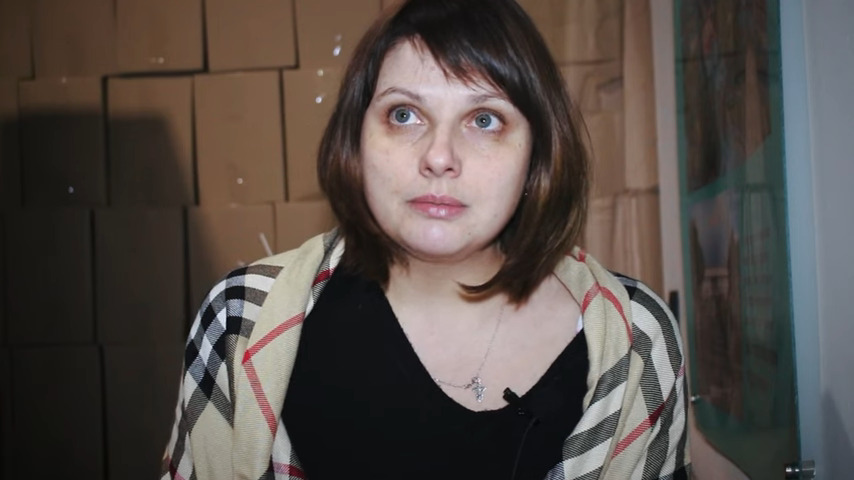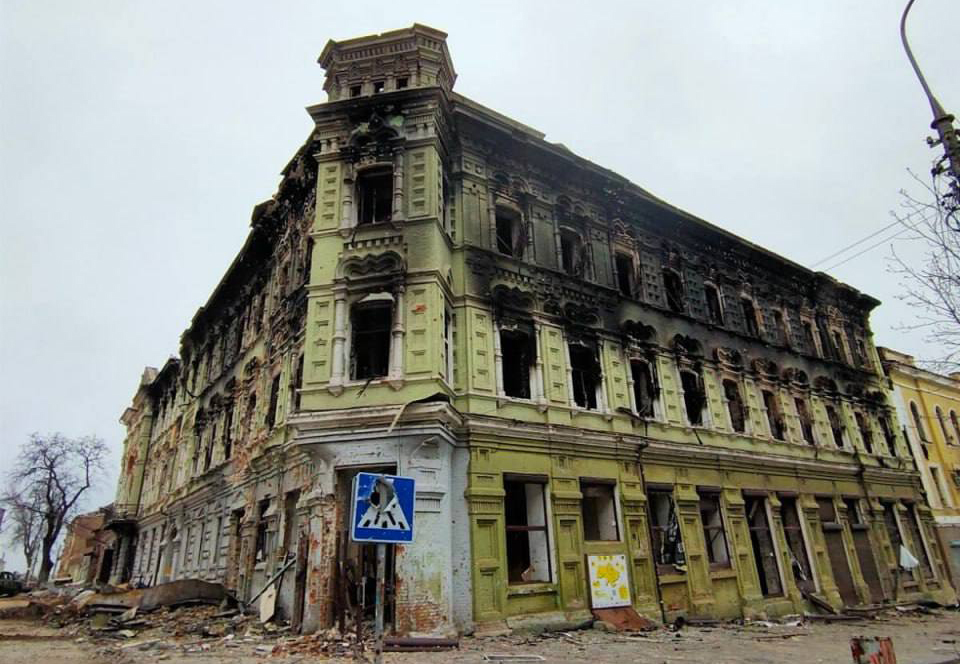Mariupol. ‘A sniper killed my husband’
The Kharkiv human rights group captures evidence of the Russian Federation war crimes, particularly in Mariupol. Olha Leus lived five minutes from the Drama Theatre. Her house was shelled, and a sniper killed her husband. We spoke with Olga Leus from Mariupol at the YaMariupol center in Lviv, where the Kharkiv human rights group came to help Mariupol residents who live in Lviv after leaving their hometown.
We believed with all our hearts that what happened would not happen. First, a shell hit my apartment. My husband Vladimir went into the yard to see the house’s condition. Maybe it was time to pack up and run. And at that moment, a sniper shot took his life.
My name is Olha Leus. The first day of the war was relatively ordinary. I lived and worked in the city center, but the war began on the outskirts. And until the end of the day, it was not clear that the situation was dire.
Where did you live? In which place?
I lived in the very center of the city and five minutes walk from the Drama Theatre.
In Mariupol?
Yes, the city of Mariupol.
The working day has begun. Closer to dinner, the panic started. Queues formed near pharmacies, shops, and ATMs. Shops switched to cash and stopped accepting cards. The fighting was going on somewhere on the outskirts. In the Kalmiussky district, in the Left Bank district. We believed with all our hearts that what happened would not happen and the war would end there. However, the situation escalated every hour. Explosions were heard closer and closer. A neighboring house was hit; next to us was the Pobeda cinema, and a mine hit it. At first, we were at home because we felt relatively safe there.
A shell hit my apartment on 20 March. The room that was hit was covered with blankets because it was freezing. So the shell just hit the flat and destroyed the room.
That day my youngest son was hurt: he was eight years old at the time, and he was wounded in the leg. The fighting was already in the city’s center, and the occupiers deprived us of the opportunity to receive medical care. We learned from some people that a field hospital was equipped in the Molodezhny Palace of Culture (across the road from us), and the wounded were taken there. We went there, but we did not take the child with us. We just went for a consultation and to get some medication and bandages. There the girl talked to us and recommended what to do. The next day (or the day after), the Palace of Culture “Molodizhny” burned down. I don’t even know what happened to the people who were there. I hope they managed to leave the building.

There was powerful shelling in our area. Something got into the building. We heard it shaking. The building was old and solidly built. However, at some point, we thought that we needed to leave. We were afraid that the upper floors would fall on us.
My husband Volodymyr went into the yard to see the house’s condition. Maybe it was time to pack up and run. And at that moment, a sniper shot took his life.
We heard this shot. There was one or two. I later recalled these events, and it seemed to me that I even heard a cry. I heard a startled voice: “I got him.” After that (on the same day, late afternoon), street fights were already in our area. They didn’t shoot from long-range artillery: there was close combat, machine guns, and stuff like that. We heard people and saw how they ran. We saw how our soldiers helped the wounded. I hoped for a long time that I would hear the cry of this sniper. Later, we saw him being carried somewhere.
The next day, when it became quieter, my husband’s mother, Nina (she lived with us), heard some steps and went out wanting to ask someone about her son. We believed and did not even allow the thought that he could die. We felt that he, perhaps, managed to escape into the entrance, into the bomb shelter, and hid somewhere. However, the mother found her only child dead almost near the door of our house. After that, we could not leave the apartment for a very long time (a week, probably), we cooked at the entrance on the grill. Thank God, we had food, some canned food. The children did not suffer from hunger.
It was terrifying, and aircraft flew everywhere, sometimes far, sometimes very close. The sounds of air bombs were heard; we had already begun distinguishing a mine from a bomb.
Only six days later, thanks to the help of the guys who lived in a bomb shelter in our house, we buried my husband. We buried him in the courtyard and put up an Orthodox cross. We gave our last respects as best as we could.

Tell me, please, have you ever communicated with the occupying military?
Very little. Once they came to our yard, people came out and started asking questions because there was no connection, information, or news. We approached them; about 10-15 people gathered. They told us happily that they had liberated us and we’ll be fine now.